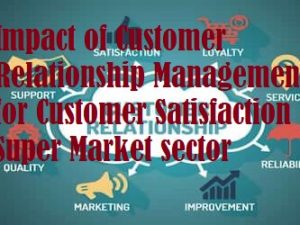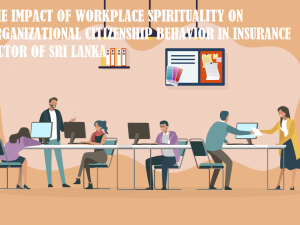| Table of Contents |
CHAPTER ONE
1 INTRODUCTION
1.1 Background of the study
1.2 Research problem identification
1.2.1 Research problem justification
1.3 Research objectives
1.3.1 General objectives
1.3.2 Specific objectives
1.4 Significance of the Study
1.4.1 Academic significance
1.4.2 Practical significance
1.5 Methodological overview
1.6 Limitations of the study
1.7 Chapter outline
CHAPTER TWO
2 LITERATURE REVIEW
2.1 Introduction
2.2 Emotional intelligence (EI)
2.2.1 Self awareness
2.2.2 Self-management
2.2.3 Social awareness
2.2.4 Relationship management
2.3 Organizational citizenship behavior
2.3.1 Altruism
2.3.2 Conscientiousness
2.3.3 Civic virtue
2.3.4 Courtesy
2.3.5 Sportsmanship
2.4 Relationship between (EI) Emotional Intelligence and (OCB) Organization Citizenship Behavior.
2.5 Chapter Summary
CHAPTER THREE
3 RESEARCH METHODOLOGY
3.1 Introduction
3.2 Conceptual Framework
3.3 Hypotheses development
3.4 Research design
3.4.1 Research philosophy
3.4.2 Research approach
3.4.3 Research strategy
3.4.4 Data collection method
3.4.5 Populations and sampling
3.4.6 Data analysis techniques
CHAPTER FOUR
4 DATA ANALYSIS AND PRESENTATION
4.1 Introduction
4.2 Demographic Analysis
4.2.1 Gender Distribution
4.2.2 Marital Status Distribution
4.2.3 Age Distribution
4.2.4 Education Qualifications distribution
4.2.5 Length of Service Distribution
4.3 Analysis of Reliability
4.4 Analysis of Validity
4.5 Descriptive Statistics
4.6 Pearson’s Correlation analysis
4.7 Simple Regression Analysis
4.8 Multiple Regression Analysis
4.9 Chapter Summary
CHAPTER FIVE
5 CONCLUSION AND RECOMMENDATION
5.1 Chapter introduction
5.2 Discussion
5.3 Conclusion
5.4 Future directions
5.5 Recommendation
5.5.1 Self-awareness
5.5.2 Social awareness
5.5.3 Relationship management
5.5.4 Self-management
5.6 Limitations of the study
6 REFERENCES
7. BIBLIOGRAPHY
7 APPENDIXES
7.1 Appendix A: Questionnaire
|
| Preview |
CHAPTER ONE
1 INTRODUCTION
1.1 Background of the study
In today's fiercely competitive economy, the human factor is one of the most important resources for the expansion, survival, and accomplishment of organizational objectives. The position of the employees in the organization and how others view them are crucial elements in determining its success or failure (Kadooee et al, 2014). The importance of human resources started to grow at the beginning of the third millennium, and they are now acknowledged as the key factor that can ensure an organization's success and sustainable competitive advantage (Kadooee et al, 2014). Sadly, firms usually underutilize the innate skills of their employees, despite the fact that empowered, engaged, motivated, and loyal employees are today's largest source of competitive advantage (Nirosha & Jayatilake, 2016).
The two skills that managers and employees must demonstrate to their subordinates in the modern workplace in order to get exceptional performance are emotional intelligence and organizational citizenship behavior (OCB). Organizational Citizenship Behavior (OCB) is defined by Organ (1988) as individual behavior that is discretionary, not explicitly or openly acknowledged by the formal incentive system, and that, taken as a whole, supports the efficient and effective operation of the organization. One of the components of human intelligence – emotional intelligence – is important for fostering good citizenship and increasing workers' productivity in enterprises (Sharma, 2015).
The insurance sector is crucial in handling social security risk in Sri Lanka. The nation's insurance industry must close the nation's widening social security gap. A systematic social security system must be established in Sri Lanka in order to achieve the goals of closing the protection gap, a significant socioeconomic problem that has had a detrimental impact on the nation's economic, social, and human development (KPMG, 2021). Thus, insurance sector needs quality staff to uphold the insurance sector. Sri Lanka Insurance Corporation Ltd (SLIC) is the leading insurance company in Sri Lanka. The purpose of this study is to determine how organizational citizenship behavior of executive level staff of SLLC is impacted by emotional intelligence.
1.2 Research problem identification
The capacity to comprehend and anticipate the environmental requirements of firms has decreased due to increased competitiveness and a more complex business environment. Therefore, organizations struggle to define their staff expectations because exceptional performance is rarely the result of teamwork, and modern businesses require workers who are motivated to go above and beyond the call of duty. Employees are expected to behave in a way that benefits the organization and advances its objectives beyond the expectations of their roles as organizational citizens (Mark & Anthony, 2017). In insurance sector, executive staff more often deals with soft skills and emotional intelligence and organizational citizenship behavior are more relevant to executive staff who involve with decision making in day to day working life.
In-depth research has been done on the causes, effects, and connections between organizational citizenship behavior (OCB) and emotional intelligence (EI) in business and industrial contexts. However, very few studies on this topic have been conducted by researchers in the insurance sector, particularly in Sri Lanka. Therefore, there is a theoretical need to be filled in this situation.
1.2.1 Research problem justification
Further, different studies revealed different findings regarding the relationship between Organizational Citizenship Behavior and Emotional Intelligence. Corporate leaders' organizational citizenship behavior and emotional intelligence were examined by Justine et al. (2010). The study's findings suggested a positive relationship between organizational citizenship behavior and emotional intelligence. Chin et al. (2011) also conducted a study organizational citizenship behavior and emotional intelligence among workers in the manufacturing industry. According to his research, it is not suitable to compare different industries because some are capital-intensive while others are labor-intensive. Additionally, it was discovered in this study that having high emotional intelligence does not always imply having good organizational citizenship behavior. Considering the contrasting views, it is important to investigate the impact of emotional intelligence on organizational citizenship behavior.
Further, key issue of insurance sector of Sri Lanka is higher employee turnover. (Manodara and Herath, 2020). Therefore, it is important to identify the areas which need to be improved in working environment of insurance sector. As the market leader of the industry and the largest company by number of employees, Sri Lanka Insurance Corporation Ltd is the suitable company to conduct this study.
1.3 Research objectives
1.3.1 General objectives
To identify the impact of emotional intelligence on organizational citizenship behavior of the executive staff of SLIC.
1.3.2 Specific objectives
To identify the impact of impact of self-awareness on organizational citizenship behavior of the executive staff of SLIC.
To identify the impact of impact of self-management on organizational citizenship behavior of the executive staff of SLIC.
To identify the impact of social awareness on organizational citizenship behavior of the executive staff of SLIC
To identify the impact of impact of relationship management on organizational citizenship behavior of the executive staff of SLIC.
|





